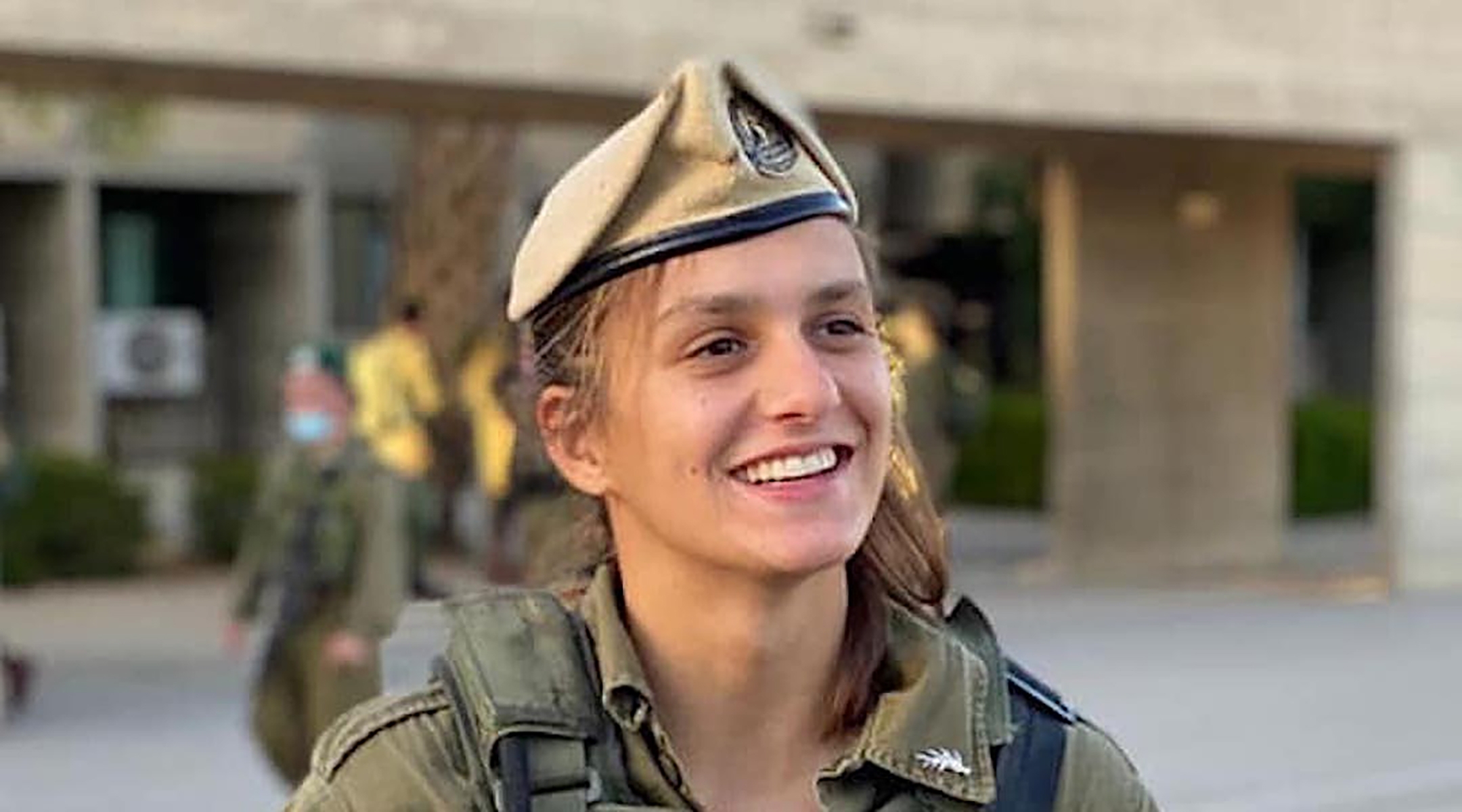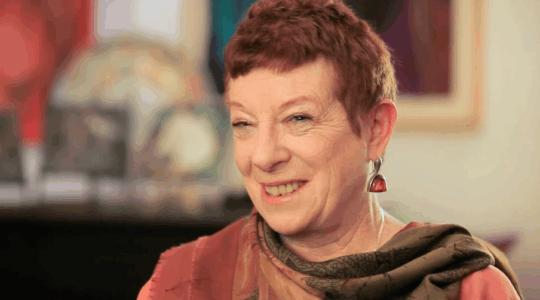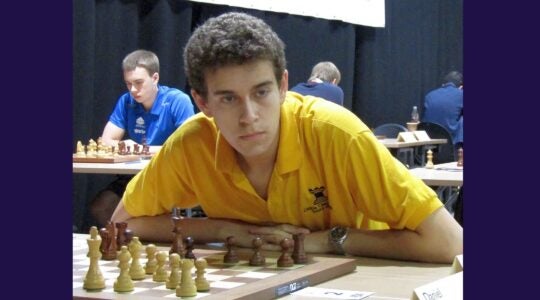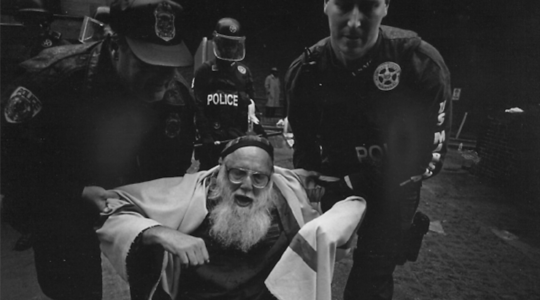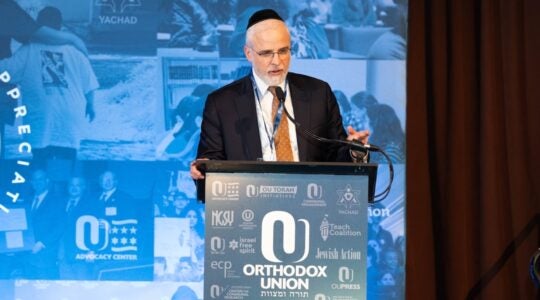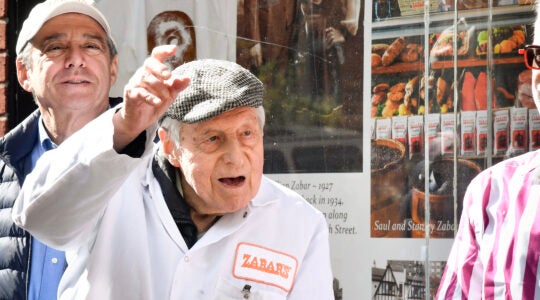This article is also available as a weekly newsletter, “Life Stories,” where we remember those who made an outsize impact in the Jewish world — or just left their community a better or more interesting place. Subscribe here to get “Life Stories” in your inbox every Tuesday.
Rebecca Baruch, 24, a Dutch immigrant who found a home in Israel
Rebecca Baruch was 18 when she moved from the Netherlands to Israel in 2017.
In 2021, in an article in the Christian Science Monitor about her experience as a “lone soldier,” she spoke about the loneliness of graduating from offficer training school during COVID-19, when her family couldn’t travel to Israel for the ceremony. She graduated on Nov. 5, 2020, and went on to lead an all-female field intelligence unit.
“I think women make good combat soldiers in general because we push to prove ourselves, our worth,” she explained. “Inside our unit, we don’t have to prove anything because we build each other up through our hard work and camaraderie.”
She also told the Monitor what she told the soldiers under her command, about “my perfectionism, that if I get angry it’s probably because I need to eat, and why I immigrated to Israel, pulled here as a European Jewish girl looking for a place I could feel fully at home.”
After the Hamas attacks of Oct. 7, she rejoined her reserve unit. She served a few weeks and was allowed to leave the army to attend a Habonim youth group camp in South Africa as a counselor. She returned to Israel on Jan. 1 with what her family thought was a cold, and rejoined her unit. Days later, still feeling ill, she rejoined her family in Tel Aviv, where she suffered a seizure. She died Sunday at Sheba Medical Center in Tel Hashomer, Israel from what her family was told was a streptococcus infection. She was 24.
“In line with Rebecca’s last wish her organs were donated to people that needed them,” her father, Robbert Baruch, wrote in a Facebook post. “Whilst today is one of the saddest days of our lives, the fact that our sister and daughter continues to help people after her death fills us with pride and gratitude.”
Mary Weiss, 75, the leader and the voice of the Shangri-Las
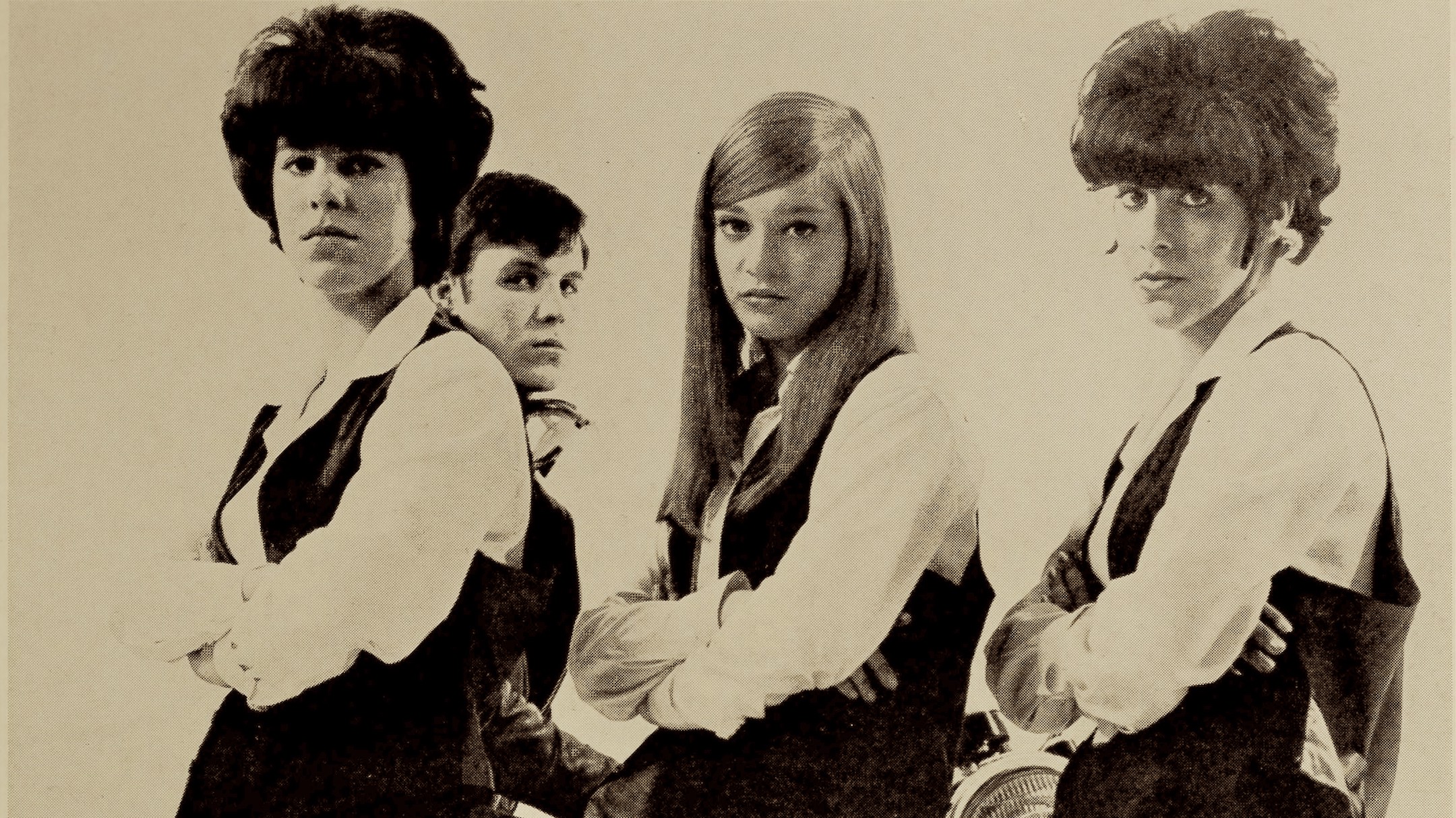
Mary Weiss, center, and The Shangri-Las on the cover of Cash Box magazine, Feb. 13, 1965. (Wikipedia)
Mary Weiss was barely a teenager when she formed the Shangri-Las with her sister Betty and two other Jewish teens from the Cambria Heights section of Queens, New York. The “girl group” had a breakout hit in 1964 with “Leader of the Pack,” a bombastic melodrama about a doomed, bad-boy romance. The group broke up in 1969 but left a legacy that inspired other female musicians, including the Jewish singer Amy Winehouse. “I love the drama, I love the atmosphere, I love the sound effects,” Winehouse said of the group. Weiss died Friday in Palm Springs, California. She was 75.
Norman Jewison, 97, the gentile director who brought “Fiddler” to the big screen
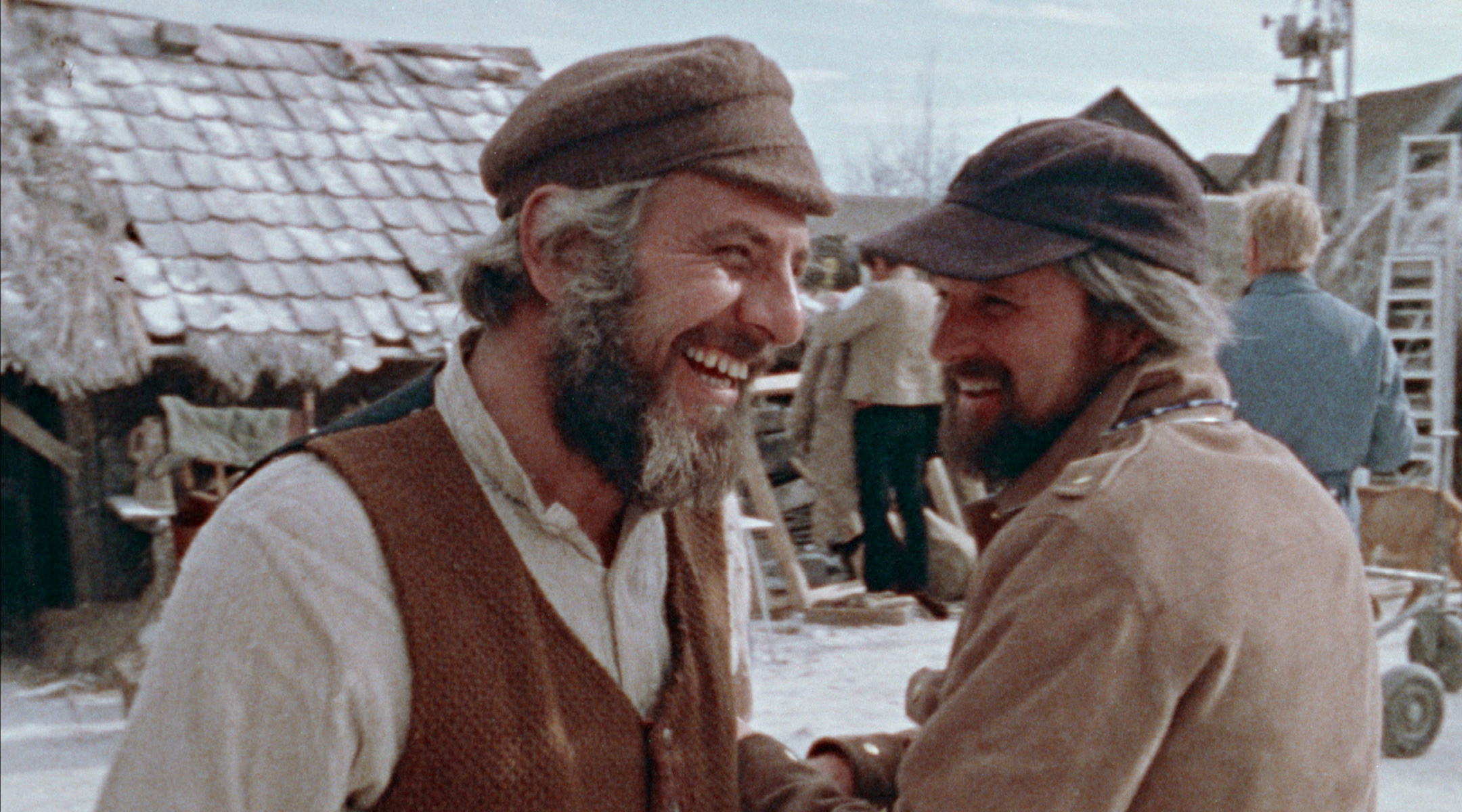
Director Norman Jewison, right, and star Topol as Tevye on the set of the film version of “Fiddler on the Roof.” (Zeitgeist Films in association with Kino Lorber)
Norman Jewison relayed a by-now familiar anecdote: When producers of the Broadway musical approached him for the directing job, he had to sheepishly inform them he wasn’t actually Jewish. He got the job anyway, and generations of Jewish families watching 1971’s “Fiddler” would come to associate that big title card displaying the “Jewison” name with the story of their shtetl-born ancestors. Bringing Anatevka to vivid, pulsating life was one of many career highlights for the Toronto native, who died Saturday at age 97. Jewison helmed several other iconic films in his long, distinguished career, including “Moonstruck,” “In The Heat of the Night,” “The Thomas Crown Affair” and “The Hurricane” — many of them involving pressing social matters like racism and other forms of bigotry.
Zevulun Charlop, 94, a transitonal leader of YU’s flagship seminary
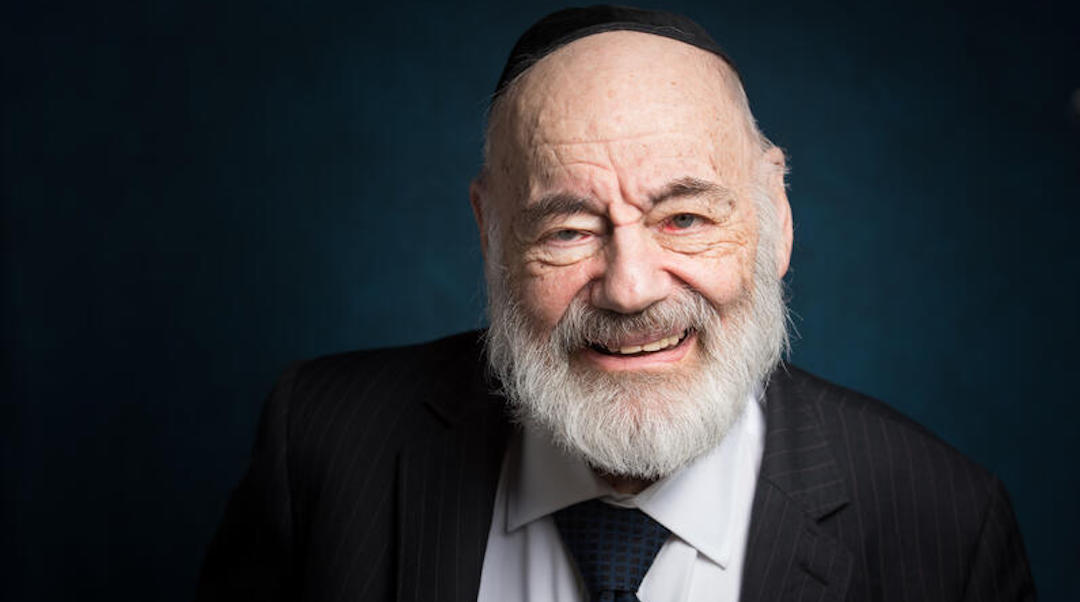
Rabbi Zevulun Charlop served as dean of Rabbi Isaac Elchanan Theological Seminary at Yeshiva University from 1971-2008. (Yeshiva University)
Rabbi Zevulun Charlop, former dean of the rabbinical seminary at Yeshiva University, died Jan. 16. He was 94. When Charlop was named dean of Rabbi Isaac Elchanan Theological Seminary at Y.U. in 1971, it had 154 students. When he retired in 2008, it had 340. Charlop also saw a transition in American Orthodoxy, training American-born, college-educated rabbis to succeed the European-trained rabbis who had held pulpits and led yeshivas through much of the 20th century. Charlop was himself a pulpit rabbi, having been given a lifetime contract in 1966 by the Young Israel of Mosholu Parkway in the Bronx, New York, which closed in 2015. He once said that his ideal Y.U. would be “a yeshiva like Volozhin,” a legendary seminary in what is now Belarus, and a university like Columbia, the Ivy League university where he obtained a degree.
Claire Fagin, 97, a force in nursing and academia
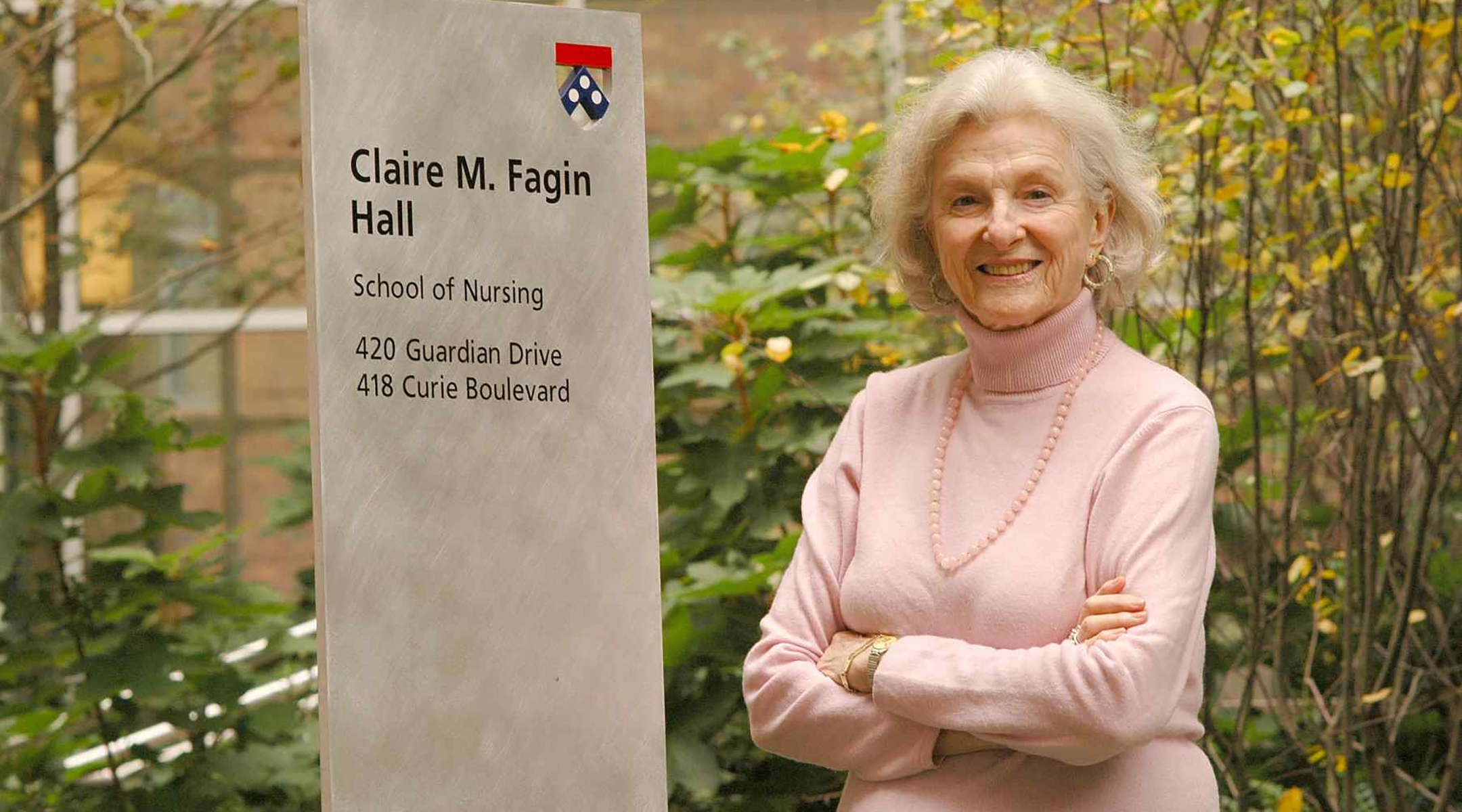
From 1977 to 1992, Claire M. Fagin served as dean of the School of Nursing at the University of Pennsylvania, which named the nursing education building in her honor in 2006. (Penn Nursing)
When Claire Fagin was growing up in New York in the 1930s, her parents — European Jewish immigrants — wanted her to be a physician, like one of her aunts. Fagin, inspired by her “collegial” nature and the snappy uniforms of the Army Nurse Corps, had other ideas. She earned a degree in nursing and went on to become perhaps the most influential nursing educator over the next 50 years. She successfully challenged policies limiting visiting hours to parents of hospitalized children, remade the University of Pennsylvania School of Nursing as its dean starting in 1977, was the founding director of a national program on geriatric nursing and championed advanced training that earned nurses more professional respect. And along the way, she became the first woman to lead an Ivy League university when she was named Penn’s interim president in 1993. Fagin died Jan. 16 at her home in Manhattan. She was 97.
Gabriel Maza, 99, a rabbi who championed tough laws against hate
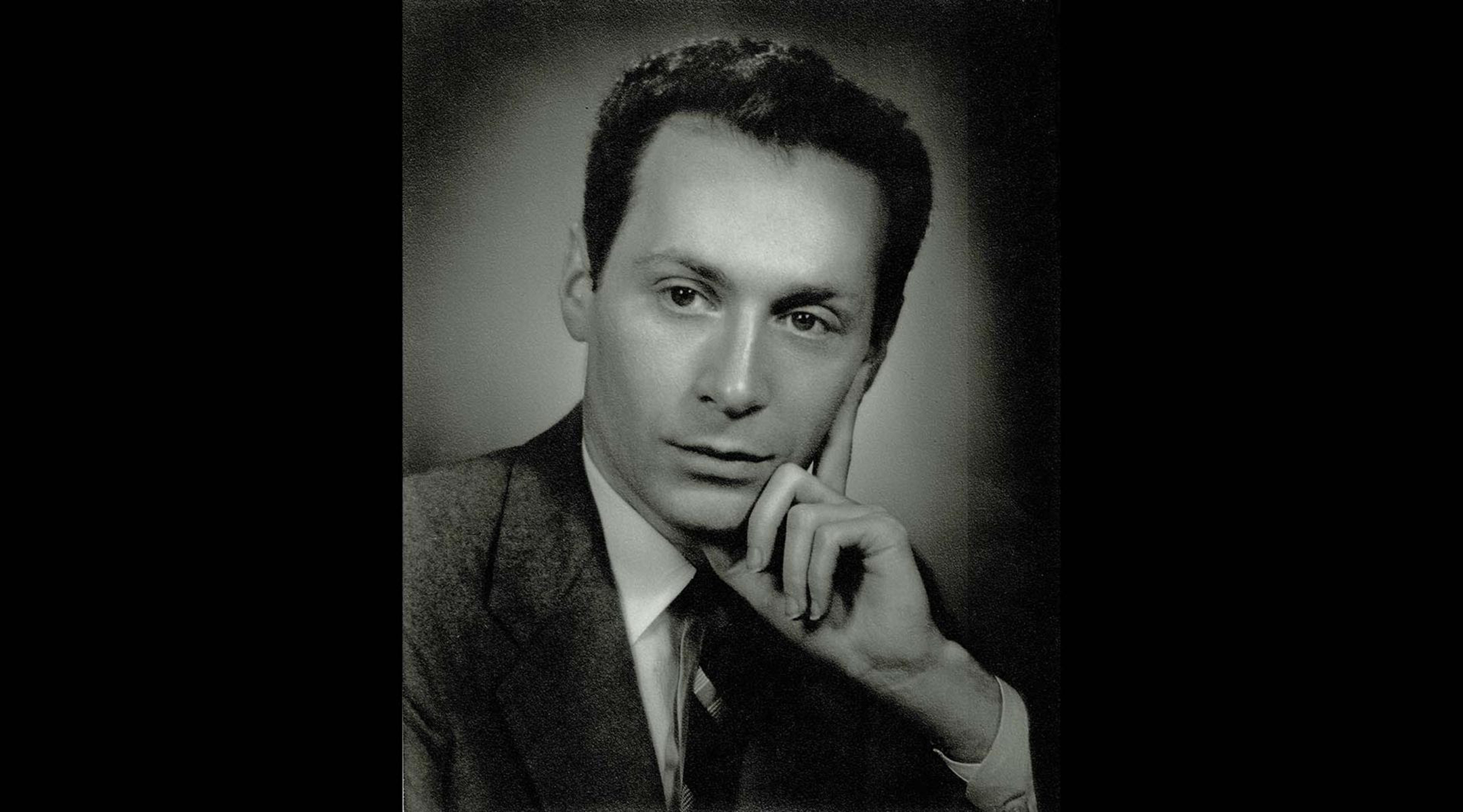
Rabbi Gabriel Maza, longtime rabbi of Long Island’s Suffolk Jewish Center, in a photo from the early 1960s. (Courtesy RGM Archives)
Rabbi Gabriel Maza, who as the leader of the Suffolk Jewish Center in Deer Park, Long Island urged legislation to combat hate crimes and antisemitism, died Dec. 26, 2023. He was 99. The president of the Suffolk Board of Rabbis and later the Long Island Board of Rabbis in the 1980s, Maza lobbied the New York State Legislature about the need for tougher hate crime laws, and, among other successes, pushed for the creation of the Suffolk County Task Force on Anti-Semitism. “Open antisemitism is contagious among people in whom this old form of hate is dormant or hidden,” his daughter Devra Maza quoted him as saying. “As hate and prejudice travels across oceans and continents, all people of decency, and certainly those in positions of power, have a duty in sounding a civilized alarm, for criminal prejudice sickens every society which allows it to thrive.” Born in Minsk and raised on New York’s Lower East Side, Maza was one of seven children and four brothers who were ordained as rabbis, including the late comedian Jackie Mason. He is survived by his wife Edythe and daughters Sharon and Devra.
Naomi Feil, 91, who brought empathy to the treatment of dementia

Naomi Feil was the the developer of the “validation method” for treating the eldderly with dementia. (Validation Training Institute)
Naomi Feil, a gerontologist and social worker who pioneered a method for “validating” the often angry or disoriented behavior of those with dementia, died Dec. 24 at her home in Jasper, Oregon. She was 91. In two books and thousands of workshops, she spread the gospel of “person-centered dementia care,” urging caregivers to affirm, rather than deny, the emotions of agitated people. “You don’t argue, you don’t lie,” she said in a TEDx talk in 2015. “You listen with empathy and you rephrase.” Born in Munich, Feil escaped with her Jewish family to the United States, where her father became the administrator of a Cleveland nursing home. “I grew up in a home, so I know how mean old people can be,” Feil said in 1993, according to the Cleveland Plain Dealer. “The old lady isn’t really yelling at you; you remind her of someone from long ago. She’s trying to resolve some unfinished business from the past at this final stage in her life.”
JTA has documented Jewish history in real-time for over a century. Keep our journalism strong by joining us in supporting independent, award-winning reporting.
